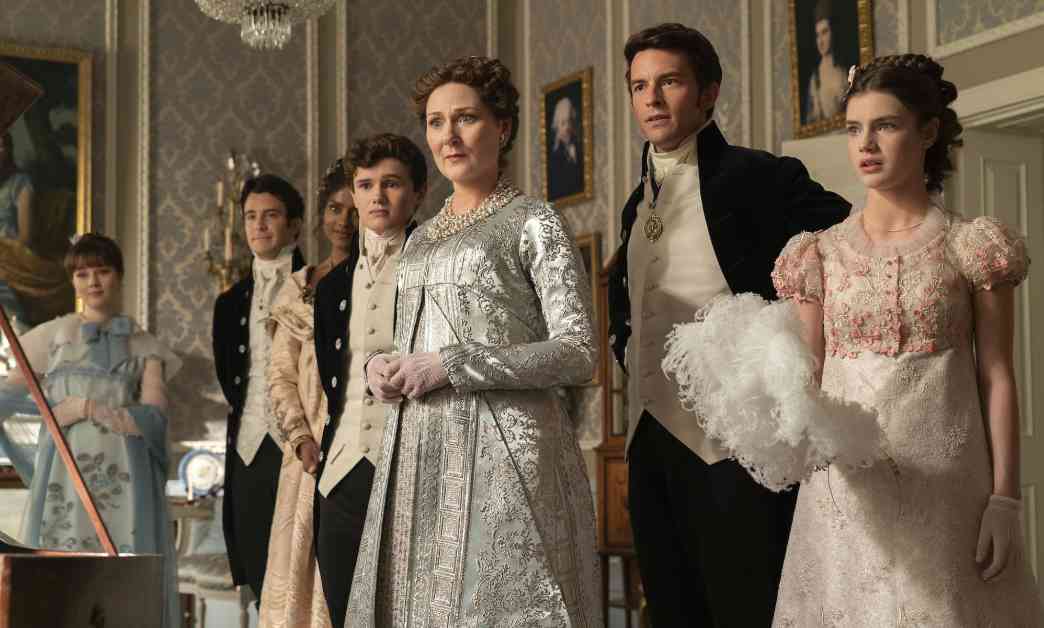Bridgerton Star Talks About Importance of LGBTQ+ Romance Plot
Bridgerton has recently introduced a new queer romance in season three, part two. The actor portraying Bridgerton’s first female LGBTQ+ character, Lady Tilley Arnold, has spoken out about the show’s portrayal of queer and polyamorous relationships.
In an interview with Tatler, Hannah New, who plays Lady Tilley Arnold, expressed her appreciation for the inclusion of LGBTQ+ relationships in the Regency-era show. She emphasized that it is a choice that the series takes seriously.
Lady Arnold, who is involved in a polyamorous relationship with Benedict Bridgerton (Luke Thompson) and newcomer Paul Suarez (Lucas Aurelio) in the second part of series three, is described by New as a “woman of intrigue and mystery and cheekiness.” According to the Maleficent and Black Sails star, Lady Arnold is a strong advocate for people being their authentic selves.
New also highlighted the importance of showcasing different forms of love on the show. She believes that love between two people, regardless of gender, is still love. However, she acknowledged the challenges faced by LGBTQ+ individuals during the 1800s when being in a homosexual relationship was punishable by death.
The actress shared that filming intimate scenes as Lady Arnold was both enjoyable and sometimes hilarious. Despite the awkwardness of filming sex scenes, New emphasized the significance of portraying female pleasure on screen, especially in a show created by women for women.
Some fans are eager to see Eloise engage in a same-sex romance in series four, with cast members hinting at the possibility. Bridgerton season three is currently available for streaming on Netflix.
Overall, the inclusion of LGBTQ+ storylines in Bridgerton has been praised for its authenticity and representation of different forms of love. The show’s commitment to showcasing diverse relationships is a step forward in promoting inclusivity and acceptance in period dramas.
